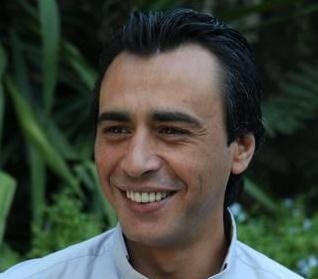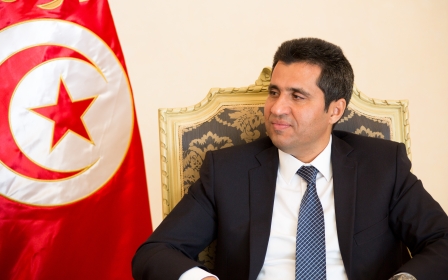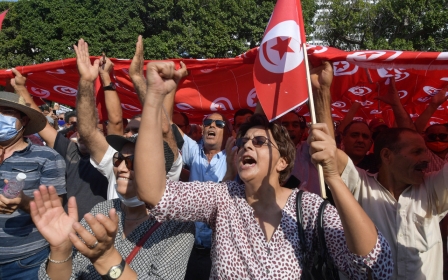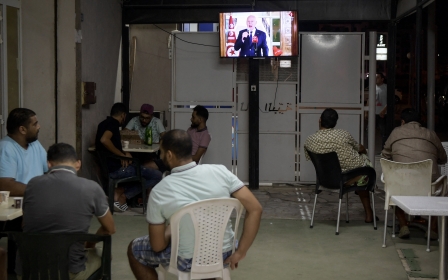Tunisia: Opposition activist says home ‘besieged’ by police

Jaouhar ben Mbarek, a Tunisian political activist and constitutional law professor, said on Wednesday that his home was being “besieged” by security forces, days ahead of planned protests against President Kais Saied.
Mbarek has backed the call for a large protest in the Tunisian capital, Tunis, on 10 October, demanding Saied reverse his decision in July to seize extensive executive and judicial powers, a move his opponents labelled a coup.

New MEE newsletter: Jerusalem Dispatch
Sign up to get the latest insights and analysis on Israel-Palestine, alongside Turkey Unpacked and other MEE newsletters
On Wednesday, Mbarek said he was “subjected to a violent attempt” to raid his home by a security force. “Now I am at home surrounded by family and friends and a number of lawyers waiting for developments,” he wrote on Facebook.
Mbarek, who is a member of the campaign Citizens Against the Coup, said last week that the movement would sue the interior ministry for barring it from holding a rally at a private venue on 2 October, despite obtaining the requisite security permit.
He told the Tunis Afrique news agency that the planned protest will be a response to the “shameful act” of banning the gathering, and will also be “a significant shift in the anti-coup movement”.
'Objective is retaliation'
Dalila Mbarek, the activist’s sister, said that the goal of the raid was to stifle her brother's calls for protest.
“Reprisals against rivals have started. Political police are besieging Jaouhar ben Mbarek’s home. The only goal is to silence him,” she wrote on Facebook. “Jaouhar is not facing any charges in any case. The objective is retaliation.”
Saied's power grab has stirred controversy in the birthplace of the Arab Spring, with thousands gathering in protests last weekend to oppose his rule.
On 25 July, after months of political stalemate, Saied sacked the prime minister, suspended parliament and granted himself judicial powers, a move he followed in September with measures that effectively allowed him to rule by decree.
The parliamentary suspension lifted the immunity of MPs, and on Sunday, in the latest detention of a legislator, an MP and a journalist were arrested for criticising Saied's moves. Another journalist was arrested on Tuesday, on charges including "defaming the president of the republic".
On Wednesday, police forces raided Zitouna TV, an opposition channel, and confiscated its broadcasting equipment, its director told Middle East Eye, allegedly for having no permit to operate.
Saied claimed on Sunday that 1.8 million people rallied in support of him in Tunis and other cities around the country, but media reports put the figure no higher than 10,000.
Prime minister detained and beaten
In May, Middle East Eye revealed a secret document was being circulated recommending Saied invoke Article 80 of the constitution and seize control of the country, citing emergency powers.
In late July, he did exactly that, saying the coronavirus pandemic and the economic situation had become so dire that he needed to freeze parliament and dismiss the government, and launch an anti-corruption drive.
Hichem Mechichi, his dismissed prime minister, was detained and beaten by security forces after being told that he would be replaced, sources told MEE, and he made no public appearance for 10 days after Saied's announcement.
While many Tunisians have backed the president and see his actions as necessary to remove a corrupt and unpopular political elite, his critics from across the spectrum have said he is undermining democratic gains from the 2011 revolution that ended autocratic rule and triggered the Arab Spring.
Middle East Eye delivers independent and unrivalled coverage and analysis of the Middle East, North Africa and beyond. To learn more about republishing this content and the associated fees, please fill out this form. More about MEE can be found here.




